Indigenous tribe tackling health and livelihood issues through sustainable farming practices

For the members of the Kolam tribe, visiting a doctor was not common. The community was also grappling with myriad challenges ranging from conventional farming reliant on chemical fertilizers and pesticides to health issues intensified by a lack of awareness and access to healthcare facilities. Above all, the looming threat of sickle cell anaemia casts a long shadow over their future, posing a grave risk to their very existence.
To combat these issues, the Caritas India U3 project, spanning 12 villages, adopted a multifaceted approach to empower the members of the Kolam Tribe in Telangana. Out of 850 HH, 61 HH Kolam tribes are located in Manikyapur (Kolam guda & Rajuguda) and Rompalli (Kolamguda) GPs. The organization created awareness among the community regarding organic farming and moved them from cash crops to food crops. U3 staff trained them on the preparation of bio-inputs like jeevamruth and waste-decomposed bacteria to apply to their crops instead of chemical fertilizers and pesticides. They educated them on backyard kitchen gardens for self-consumption and health-related issues, including cross-cousin marriages.
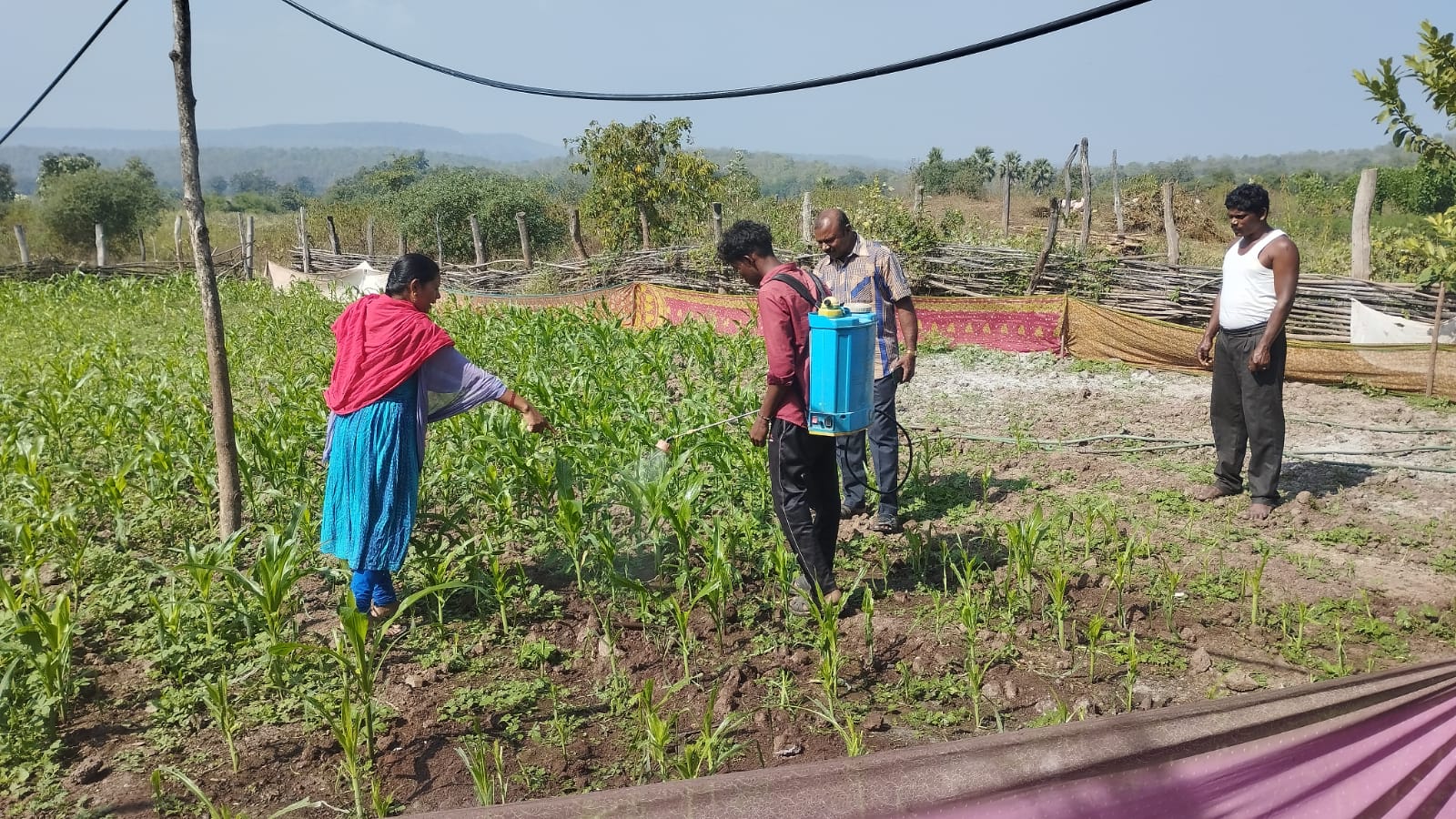
The Kolam Tribe embraced change with open arms, bidding farewell to harmful chemicals and embracing organic farming practices as the cornerstone of their revitalization efforts. Through tailored training sessions and community workshops, they learned the art of sustainable agriculture, cultivating organic vegetables, and nurturing backyard gardens teeming with life. As the earth yielded its bounty, so too did the spirits of the Kolam Tribe, rejuvenated by the promise of a healthier, more prosperous future.
The community had livestock, with each family owning animals. However, they were selling their farmyard manure to others and buying chemical fertilizers for cultivation. Collaborations with like-minded NGOs facilitated the adoption of gobar gas plants, vermin composting, and the cessation of farmyard manure sales in favor of organic practices.
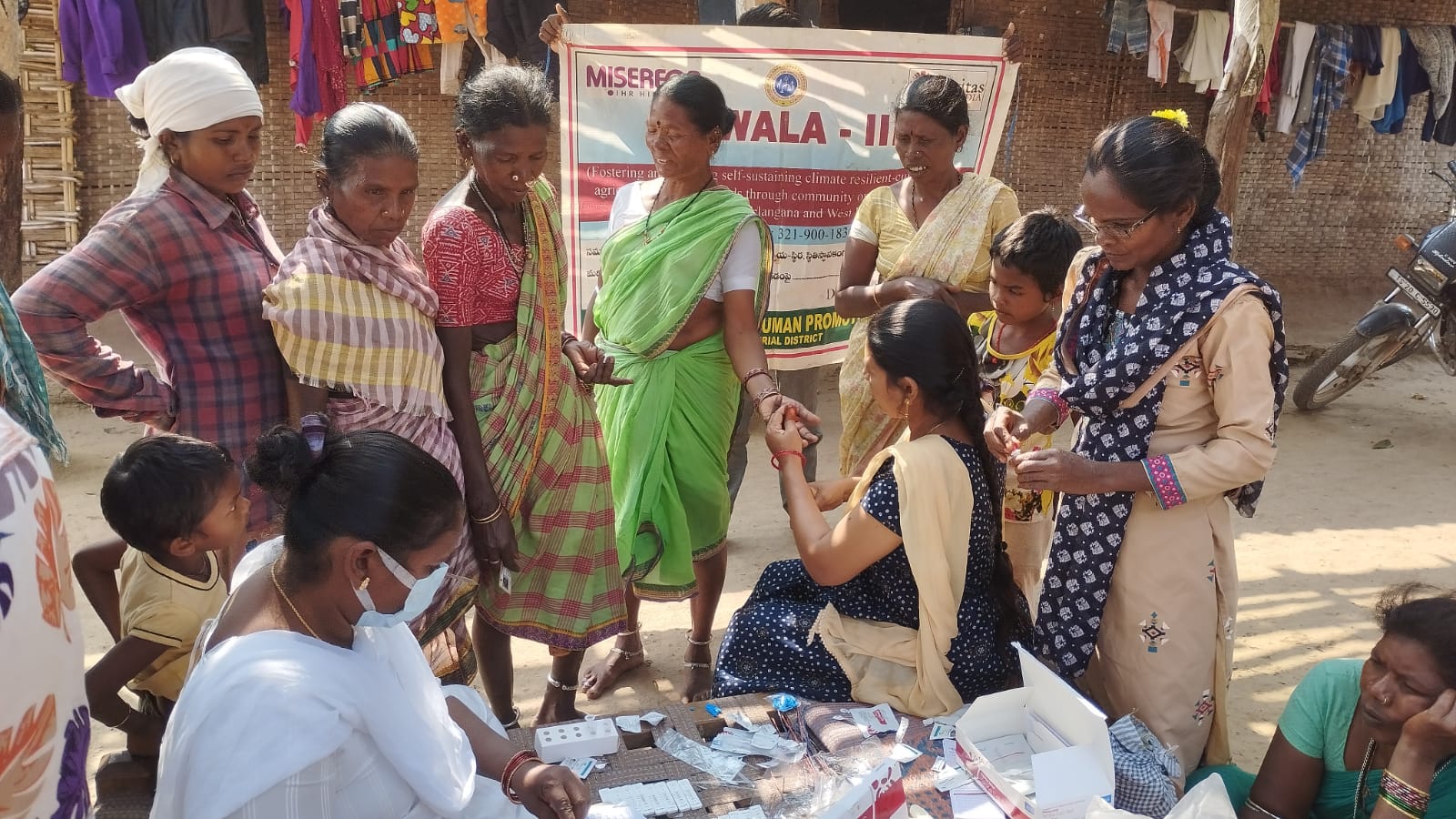
The impact of the intervention has been profound. The Kolam Tribe now cultivates organic vegetables, millets, and pulses, not only enhancing their nutritional intake but also generating supplementary income through the sale of surplus produce. Health awareness initiatives have spurred community members to seek medical assistance, leading to the identification and treatment of 23 individuals afflicted with sickle cell anaemia, courtesy of a collaboration with local health authorities.
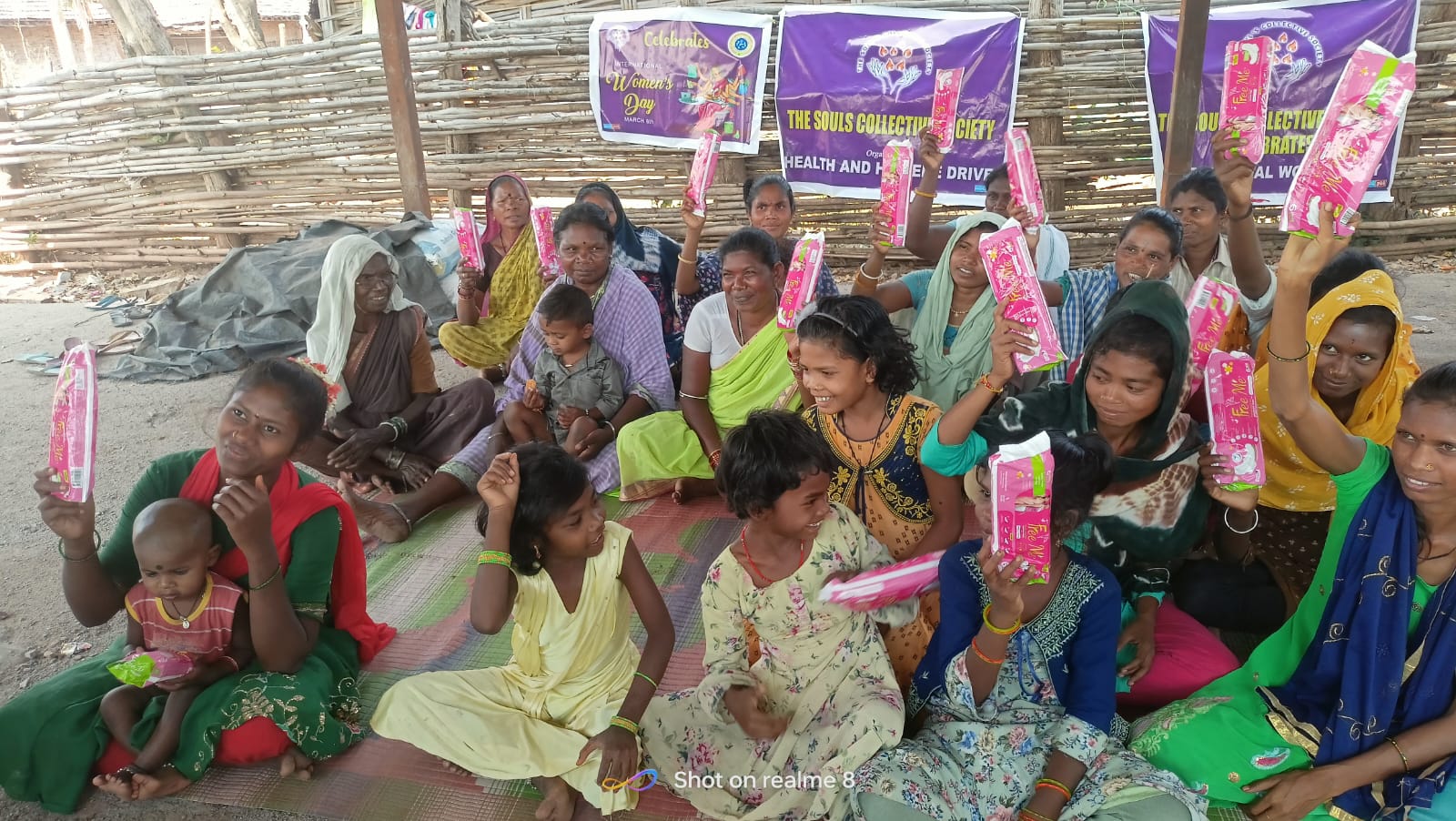
By integrating organic farming principles and health education, the Kolam Tribe has embraced sustainability in both agricultural practices and lifestyle choices. The newfound self-sufficiency in food production, coupled with heightened health consciousness, exemplifies the program’s enduring impact. The community’s proactive engagement with governmental schemes and the dissemination of agricultural knowledge underscores their newfound agency and resilience.
The journey of the Kolam Tribe symbolizes the triumph of empowerment and sustainability. From reclaiming ancestral agricultural practices to prioritizing individual and community health, their story epitomizes resilience in the face of adversity. As they continue to nurture their land and livelihoods, guided by newfound knowledge and solidarity, the Kolam Tribe stands as a symbol of hope for indigenous communities striving for a dignified and healthy existence.
Upcoming News
Strengthening grassroots recovery in Wayanad through Safe Within Project
Caritas India strengthened community centred disaster recovery through a four day accompaniment support visit to...
LEARN MOREFlood‑prone communities in Assam and Tripura are better prepared through We4Resilience
The We4Resilience Campaign under Caritas India’s SARAL (Strengthening Adaptation, Resilience and Livelihoods) project, supported by...
LEARN MOREChildren Lead the Fight for Safe Education
In Remhla, a small forest-surrounded village in the Sarguja district of Chhattisgarh, the middle school...
LEARN MORE
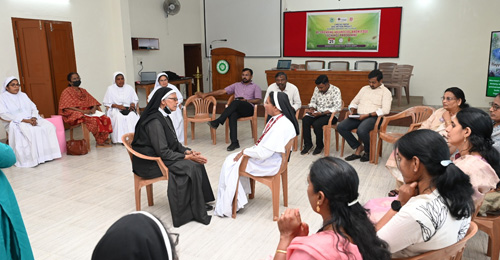
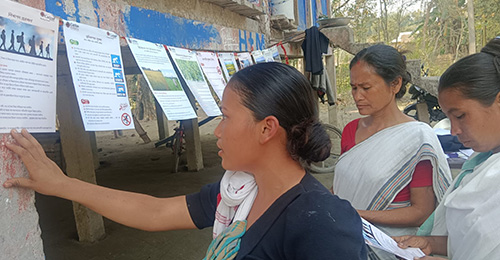
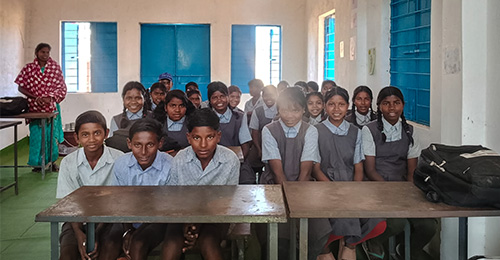
 91 -11 - 2336 3390
91 -11 - 2336 3390  director@caritasindia.org
director@caritasindia.org 